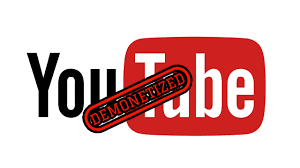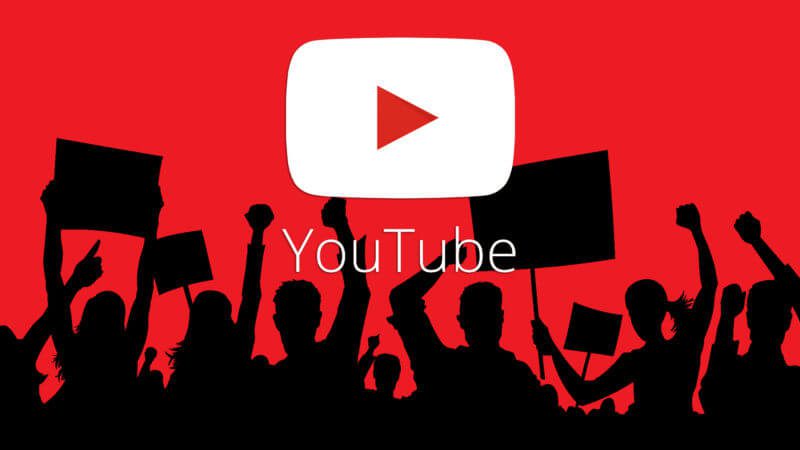YouTube demonetized has been a long-standing issue between content creators and YouTube. Why did YouTube demonetize videos? Which content creators often refer to as “Adpocalypse”, is the process where content creators are denied paid ads in their YouTube videos. Consequently, they’re denied revenue, and their income on the video-hosting platform is reduced.
The creator community of YouTube videos has to be careful about what they discuss on their channels, otherwise, they risk getting their ads shut off. As part of YouTube’s Partner Program, there are some community guidelines and advertiser policies the YouTubers must adhere to, which determine eligibility for the program. However, these rules have undergone several changes in recent years, Why does YouTube demonetized Videos does to reduce toxicity on the platform.
Unfortunately, there doesn’t seem to be much improvement in the “why is YouTube demonetizing” ecosystem over the last few years. Content creators have raised several complaints related to targeted censorship, unfair treatment of some content creators, a flawed recommendation algorithm, unsubstantiated demonetization, and unequal enforcement of their policies. For these and other reasons, content creators are seeking other YouTube alternatives.

What does demonetized mean on YouTube?
Let’s start with the basics. Why is YouTube Demonetizing on YouTube is a process that YouTube can take to punish you as a creator who violates any of their monetization policies? Demonetization can include:
- YouTube instantly turns off ads from your content.
- Suspending you from the YouTube Partner Program
- Suspension or termination of your entire YouTube channel is a possibility.
While why is YouTube demonetized generally refers to the first two punishments in this list, as they stop your ability to make money from your YouTube channel, the third is one that shouldn’t be ignored. It’s key to understand why YouTube demonetizes videos and channels to stop this from happening.
Why Are Your Videos Demonetized on YouTube?
Why is YouTube’s demonetizing policy flawed in its enforcement? The gist of it is that you must abide by the community guidelines, terms of service, copyright policy, Google AdSense program policy, channel monetization policy, and ad-friendly content guidelines.
While abiding by these policies may seem like the sure way of preserving your rights, YouTube can still limit their monetization or remove them on a video-by-video basis. YouTube’s algorithm, which checks whether your videos are ad-friendly and analyses your content to check whether it’s in line with the “why is YouTube demonetizing” rules, could potentially or definitely remove your videos from YouTube’s Account Monetization program.
What Can You Do to Avoid YouTube Demonetization?
If you’ve been a victim of why is YouTube demonetizing? There are still some options that can help you make money from your video content and avoid YouTube demonetization in 2022. This includes:
- Building a standalone video streaming platform
- Using YouTube to connect with new customers
Building a Standalone Video Streaming Platform
Why is YouTube demonetizing? It can be devastating, especially if it’s the only source of income for your video content and you rely on it fully. To get yourself out of YouTube’s claws, you can launch your own video streaming platform and move your business elsewhere. This way, you can offer your audience subscription access to your videos. This not only helps you earn more but also grows your audience and allows you to enjoy more freedom as a content creator. It starts by putting your premium content on a standalone video website or over-the-top (OTT) app and charging your audience a reasonable fee to access it.
Using YouTube to Connect With New Customers
Launching your own demonetized streaming platform doesn’t mean you should give up on YouTube altogether. You can still use YouTube as a marketing platform and connect with new customers looking for videos like yours. YouTube is a great platform to find people to sell to, as it’s the second-largest search engine after Google.
How To Survive Demonetized – Complete Guide
Step 1: Rethink your content:
First things first, make sure you haven’t demonetized accidentally breached the content guidelines by rewatching your video carefully.
Look out for anything you may have said that could go against their guidelines – for example, reference to sensitive topics – and make sure you censor any language that could be deemed inappropriate (e.g. swearing).
Step 2: Make contact with YouTube:
If you’re sure you haven’t breached their guidelines, the next thing to do is contact demonetized and ask for a manual review.
This is a way to appeal to the action. It means a human being will review the content and see if the algorithm has made a mistake. If it has, then your monetization will be switched back on.
Types of content that can get you demonetized
Uploading advertiser-friendly content is the key to making regular money through YouTube. This means that you need to avoid uploading content that isn’t deemed advertiser-friendly, whether it’s drug-related, covering controversial issues, deliberately incendiary and demeaning, or related to taboo subjects. These policies apply to all aspects of your content, including the video, live stream, thumbnail, title, description, and all tags. The main topics you should steer clear of to help avoid YouTube demonetization are:
- Inappropriate language: This focuses on the frequent use of bad language. While certain language, like hate speech or slurs, will be judged separately, not all bad language is off-limits. You must be wary, though, and avoid prolonged or frequent usage of bad language. YouTube doesn’t require everything to be completely family-friendly, but advertisers often prefer videos that are.
- Violence: All violence in your content must be contextualized. For instance, if it’s part of a news story, educational or part of a video game, it may be allowed. Any video that includes violence as its focal point will be removed or demonetized.
- Adult content: Sexual themes are not advertiser-friendly, and that makes adult content a risk. Educational content and music videos may still be monetized in some scenarios. Comedy content may not be suitable.
- Shocking content: Any content that’s deliberately uploaded with the intent to shock, upset or disgust will not be suitable for advertising.
- Harmful or dangerous acts: Anything that promotes potentially harmful acts, whether they’re physical, emotional, or psychological, is not deemed appropriate for advertising.
- Hateful & derogatory content: Whenever content incites hate, anger, discrimination, or humiliation towards an individual or group of people, it will not be suitable for advertising.
Conclusion
When you’ve put so much time, effort, and hope into your YouTube channel, it can feel really demoralizing to get demonetized. But hopefully, the tips in this article will help you to reduce your chances of getting demonetized in the future and supplement your income in other ways.

